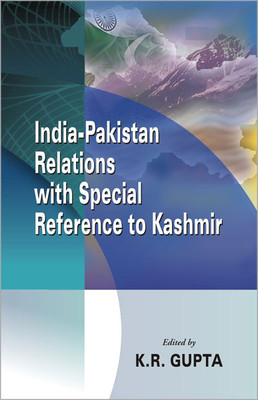India-Pakistan Relations with Special Reference to Kashmir(English, Hardcover, unknown)
Quick Overview
Product Price Comparison
The Editor maintains that India had to agree to partition under compelling circumstances. After India got Independence, it should have taken steps to undo the mischief of our British Rulers. Things would have been much easier immediately after partition, particularly, when Pakistan provided an excuse to us by sending its forces in Kashmir. The Pakistan army at that time was weak and the job could have been done at a minimum cost. The second opportunity arose in 1965 when Pakistan again attacked Kashmir. The third opportunity came in 1971 when Pakistani forces attacked India. But the operation now would be much more costlier in terms of men and war materials because the Pakistan has built a strong army and developed nuclear power over the long period provided to them by IndiaŌĆÖs rulers. But this cost may still be less than the cost we are incurring from continued hostility and cross border terrorism in the form of continuous military deployment and killings of civil and military persons. Pakistan is constantly blaming India in all regional and international fora for not implementing the United Nations resolution regarding holding of plebiscite in Jammu and Kashmir. In fact, Pakistan is responsible for this because it has failed to withdraw its forces from Jammu and Kashmir which was a condition for holding plebiscite according to the United Nations Resolution. The Editor holds that India should drop ŌĆśno first useŌĆÖ of nuclear weapons policy against a country which repeatedly threatens first use of nuclear weapons. The first use of nuclear weapons by Pakistan may be so massive and widespread that it may disable India to use the nuclear weapon. If India drops its ŌĆśno first useŌĆÖ option of nuclear weapons, Pakistan would stop blackmailing India and may even be deterred venturing terrorism in India. The Volumes include viewpoints of a number of eminent experts on Indo-Pak relations. These include views not only of Indian experts but also of Pakistani experts. The Volumes contain texts of all the documents in original relating to Indo-Pak relations since the partition of India in 1947. It is hoped that the Volumes would be found useful by the students and research scholars concerned with international relations. The Volumes would also be useful to the parliamentarians and executives of India and Pakistan concerned with the formulation and execution of foreign policy of their country. Common readers interested in Indo-Pak Relations would also find the Volumes useful and interesting. The Volumes would be equally useful for all libraries, officersŌĆÖ messes and institutions of Defence Services. About Author: Dr. K.R. Gupta is a well-known expert in the field of International Affairs. He has published over two dozen books and more than hundred papers in leading journals published in India and abroad. His latest publications include International Terrorism : World Viewpoints, 2 Vols., International Terrorism : Conventions, Resolutions, Legislations, Terrorist Organisations and Terrorists, 2 Vols., International Terrorism : Response of India, Pakistan and the United States, World Viewpoints on National Missile Defence, 2 Vols., Selected Documents on Nuclear Disarmament, 4 Vols., Comprehensive Nuclear-Test-Ban Treaty (CTBT), Issues in Indian Economy, 3 Vols., Liberalisation and Globalisation of Indian Economy, 4 Vols., World Trade Organisation [Text], 2 Vols., A Study of World Trade Organisation, GATT Accord and India : A Critical Analysis of Results of the Uruguay Round of Multilateral Trade Negotiations and their Implications for India, GATT Accord : Results of the Uruguay Round of Multilateral Trade Negotiations, GATT and Underdeveloped Countries, A Study of the General Agreement on Tariffs and Trade and International Economics (5th Edition in Press).


